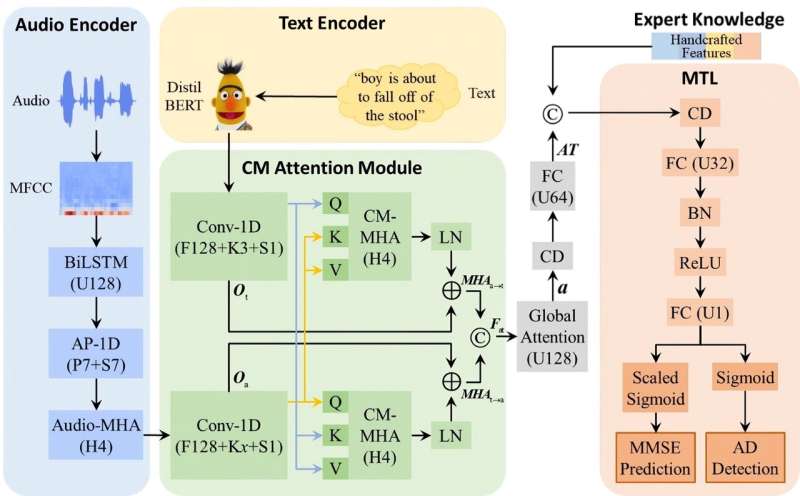As the global population ages, AD is becoming increasingly prevalent, making early detection critical for improving patient outcomes. Language decline is often one of the earliest indicators of cognitive decline. While automated speech analysis offers a non-invasive and cost-effective approach to detecting AD, existing methods face significant challenges, including complexity, poor interpretability, and limited integration of diverse data types, which hinder accuracy and clinical applicability.
To overcome these limitations, Prof. Li Hai’s team developed the DEMENTIA framework. This innovative approach integrates speech, text, and expert knowledge using a hybrid attention mechanism, significantly enhancing both the accuracy and clinical interpretability of AD detection.
Leveraging advanced large language model technologies, the framework captures intricate intra- and inter-modal interactions, improving detection accuracy and enabling the prediction of cognitive function scores.

